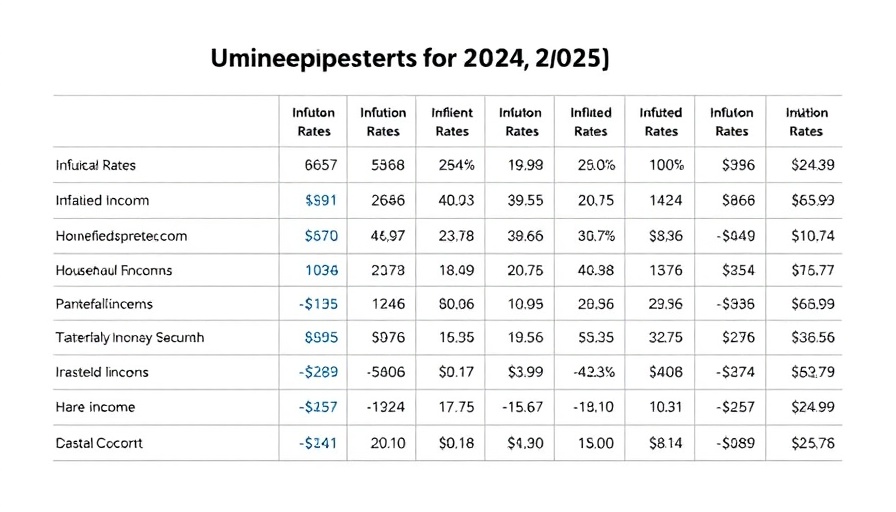
Understanding the Financial Insecurity Epidemic in the U.S.
In a revealing study by Northwestern Mutual, research has unearthed the alarming state of financial insecurity affecting many Americans today. The findings highlight inflation as a major contributing factor to this rising epidemic. With almost half of U.S. adults—44%—reporting feeling financially secure, it's clear that many still face significant challenges in stabilizing their financial situations. Comparing this to last year’s data indicates only a slight improvement from 41% but remains alarming with 30% of the population still indicating they feel financially insecure.
The Impact of Inflation on Daily Life
Inflation continues to exert pressure on consumers, with 65% of adults identifying it as their primary financial concern. Grocery and gas prices have surged, leaving many households struggling to keep up with their spending. This concern is compounded by a staggering statistic—52% of Americans believe their household income grows slower than inflation, which perpetuates financial worries. Even among the wealthy, inflation's grip is felt, with only 19% of millionaires asserting that their income is growing at a pace that surpasses inflation, emphasizing the far-reaching implications of this economic shift.
Historical Trends and Personal Finance
The Northwestern Mutual Planning & Progress Study, which has been tracking financial security since 2009, shows that the perception of financial stability fluctuates with economic conditions. Interestingly, the dread of an impending recession has begun to ease, with expectations of a recession dropping significantly from 67% to just 48% this year. Yet, this optimism doesn't fully outweigh the ongoing struggles many face.
Strategizing for Financial Security
With inflation at the forefront, Americans are urged to analyze their financial stability actively. Strategies such as diversifying investment portfolios, considering inflation-protected securities, and reassessing spending habits are critical in combatting these economic hurdles. Recognizing the slow growth in income relative to rising costs forms the basis of developing a more secure financial strategy for individuals and families alike.
Emotional and Human Elements of Financial Strain
Financial insecurity is more than just numbers; it affects mental health, family dynamics, and overall well-being. Many may feel anxiety about their future, leading to difficulties in making long-term financial decisions. Sharing stories and support can be an invaluable tool for these individuals—creating a sense of community among those facing similar struggles can provide relief and understanding.
As the struggle against financial insecurity continues to loom over many Americans, understanding the factors driving this epidemic and taking proactive steps in financial planning becomes crucial. Lowering expenses, creating budgets, and investing wisely could empower individuals to regain their financial footing. After all, in this economic landscape, knowledge is not just power; it’s a pathway to security.
To learn more about specific strategies tailored for dealership owners and GMs that can help stabilize your financial base amidst inflation, considering effective auto sales training and actionable insights on sales strategies may be the way forward for building resilience against emerging economic challenges.
 Add Row
Add Row  Add
Add 




Write A Comment